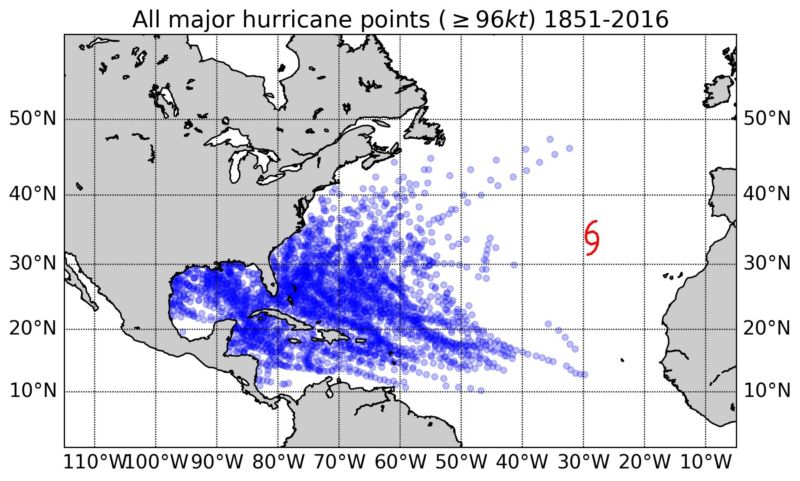
The system formerly known as Hurricane Ophelia is moving into Ireland on Monday, bringing "status red" weather throughout the day to the island. The Irish National Meteorological Service, Met Éireann, has warned that, "Violent and destructive gusts of 120 to 150km/h are forecast countrywide, and in excess of these values in some very exposed and hilly areas. There is a danger to life and property."
Ophelia transitioned from a hurricane to an extra-tropical system on Sunday, but that only marginally diminished its threat to Ireland and the United Kingdom on Monday, before it likely dissipates near Norway on Tuesday. The primary threat from the system was high winds, with heavy rains.
Forecasters marveled at the intensification of Ophelia on Saturday, as it reached Category 3 status on the Saffir-Simpson scale and became a major hurricane. For a storm in the Atlantic basin, this is the farthest east that a major hurricane has been recorded during the satellite era of observations. Additionally, it was the farthest north, at 35.9 degrees north, that an Atlantic major hurricane has existed this late in the year since 1939.
It's not every day WPC has a conference call with the @metoffice & @MetEireann for #Ophelia! Visit @NHC_Atlantic for official track/info! pic.twitter.com/bEG2bNr3It
— NWS WPC (@NWSWPC) October 14, 2017
"Ophelia is breaking new ground for a major hurricane," National Hurricane Center scientist Eric Blake wrote on Twitter. "Typically those waters much too cool for anything this strong." He also added, "I really can’t believe I’m seeing a major just south of the Azores." Seas near where Ophelia intensified Saturday were 1-2 degrees Celsius above normal.
Ophelia is just the latest in a series of major hurricanes that have brought destruction or set records this year. Hurricane Harvey brought unprecedented flooding to the upper Texas coast, Hurricane Irma ravaged the Caribbean Islands and parts of Florida, and Hurricane Maria brought devesating rains and winds to Puerto Rico, where a majority of the island remains without power nearly a month after landfall.
reader comments
165